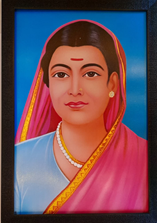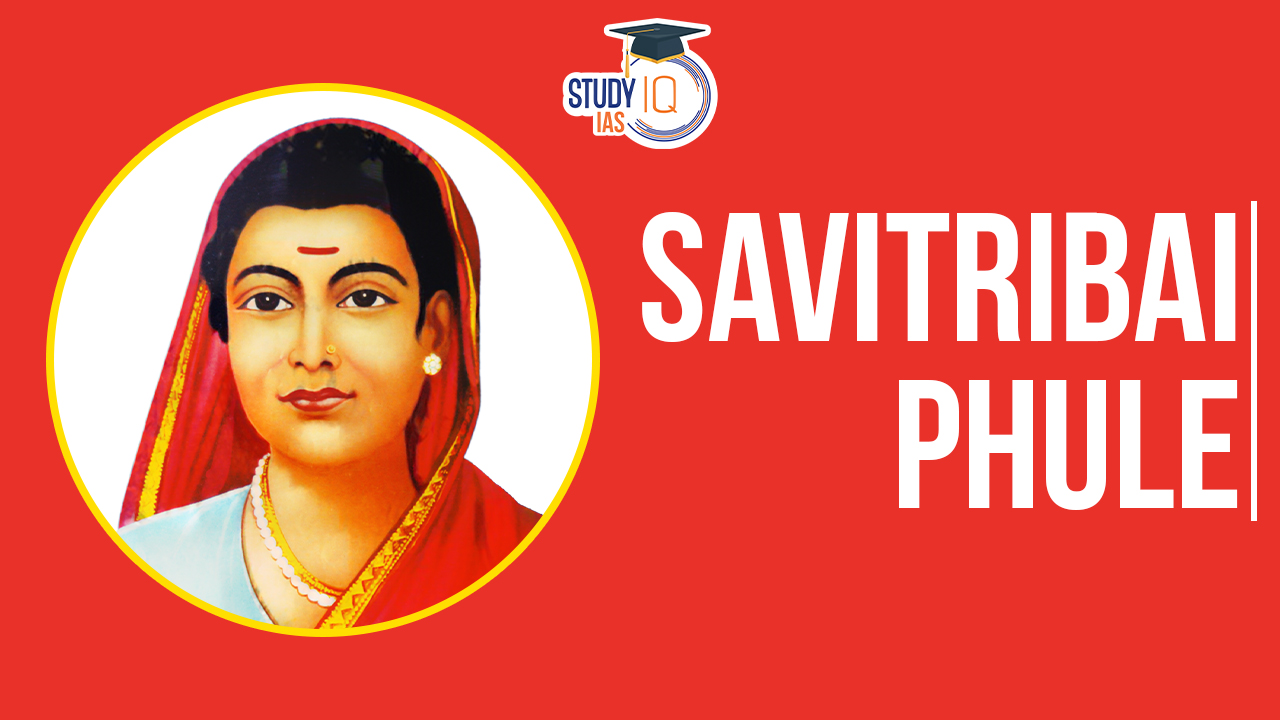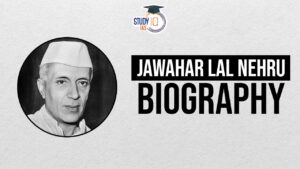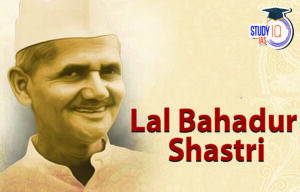Table of Contents
Savitribai Phule is remembered as one of the greatest social reformers of India and is widely regarded as India’s first woman teacher. At a time when women’s education was considered sinful and oppressive social practices dominated Indian society, Savitribai Phule emerged as a fearless reformer who used education as a weapon against caste, gender discrimination, and social injustice.
Savitribai Phule Jayanti
Savitribai Phule Jayanti is celebrated on January 3rd every year to honour India’s first woman teacher. Savitribai Phule was a social worker, poet, and teacher who fought for girls’ education and sparked a revolution in India. She was born on January 3, 1831, in a small village in Maharashtra’s Satara district. She married Jyotirao Phule and died in Pune on March 10, 1897.

Early Life of Savitribai Phule
Savitribai Phule was born on January 3, 1831, in Naigaon, a small village in the Satara District of Maharashtra. She came from a socially and economically disadvantaged family belonging to the Mali caste. At a young age, she married Jyotirao Phule, a visionary social reformer and activist, when she was just nine years old.
At the time of her marriage, Savitribai was illiterate, a common scenario for women in 19th-century India. However, Jyotirao, recognising her potential and ambition, took on the task of educating her. He became her mentor and introduced her to formal education, which paved the way for her to become a teacher.
Educational Journey
Under Jyotirao’s guidance, Savitribai determinedly pursued her education. With the support of her friends Sakharam Yeshwant Paranjpe and Keshav Shivram Bhavalkar, she excelled academically and became the first female teacher in India.
Savitribai Phule’s Remarkable Contributions
Pioneering Women’s Education
Savitribai Phule, born in 1831, was pivotal in advancing women’s education in India. In 1848, she boldly established the first school for girls in Pune, challenging societal norms and paving the way for future generations of women to access education.
Fight Against Caste Discrimination
Teaming up with her husband, Jyotirao Phule, Savitribai actively fought against caste-based discrimination. They founded the Satyashodhak Samaj, a social reform organisation aimed at dismantling the oppressive caste system, fostering equality, and promoting social justice.
Champion of Widow Remarriage
Savitribai advocated vehemently for the rights of widows, campaigning against customs that confined them to a life of deprivation. Her efforts aimed to secure the right of widows to remarry, challenging traditional norms that perpetuated their marginalisation.
Social Reform Advocacy
Dedicating their lives to social reform, Savitribai and Jyotirao worked tirelessly to combat untouchability and uplift the lower castes through education and awareness campaigns. Their commitment to eradicating social injustices left an indelible mark on India’s history.
Literary Contributions
Beyond her activism, Savitribai was a prolific poet and writer. Her powerful poems addressed gender and caste discrimination, contributing significantly to Marathi literature and providing a powerful voice for the marginalised.
Savitribai Phule Legacy
Savitribai Phule’s legacy is etched in India’s history as a pioneering force in women’s education and social reform. Her establishment of the first girls’ school in 1848 challenged societal norms, setting a precedent for educational equality.
Collaborating with her husband, Jyotirao Phule, she fought against caste discrimination, founding the Satyashodhak Samaj. Savitribai’s advocacy extended to championing widows’ rights, challenging customs, and promoting their remarriage. Her literary contributions addressed societal issues, enriching Marathi literature. Commemorated annually on Savitribai Phule Jayanti, her legacy remains a timeless inspiration for ongoing movements advocating for social justice, education, and gender equality in India.
Facts Related to Savitribai Phule
- A pioneering social reformer, poet, and freedom fighter.
- Became the first female teacher in India.
- In 1852, the British government recognized her as the best teacher.
- Along with her husband Jyotirao Phule (he established Satyasodhak Samaj in 1873), she opened India’s first girls’ school in Pune in 1848.
- Established two key institutions:
- Native Female School, Pune
- Society for Promoting the Education of Mahars, Mangs, and other marginalised communities.
- Founded the Mahila Seva Mandal (1852) to raise awareness about women’s rights and social justice across all castes.
- In 1863, started Balhatya Pratibandhak Griha, India’s first home to prevent female infanticide, offering shelter to widows and victims of sexual violence.
- Literary Contributions
- Authored two significant poetry collections:
- Kavya Phule (1854)
- Bavan Kashi Subodh Ratnakar (1892)
- Poem: “Go Get Education”
- Authored two significant poetry collections:
Death of Savitribai Phule
Savitribai Phule, a trailblazing social reformer, met her end on March 10, 1897, leaving behind a legacy of relentless advocacy for education and social equality. Her demise marked the conclusion of a life dedicated to challenging societal norms and fighting against oppression.
Savitribai passed away while bravely trying to protect a ten-year-old boy during an outbreak of the bubonic plague. This act of courage and selflessness exemplified her commitment to the well-being of others, even in the face of personal risk.


 Birsa Munda Birth Anniversary 2025: Life...
Birsa Munda Birth Anniversary 2025: Life...
 Jawahar Lal Nehru Biography: Celebrating...
Jawahar Lal Nehru Biography: Celebrating...
 Lal Bahadur Shastri Jayanti 2025: Rememb...
Lal Bahadur Shastri Jayanti 2025: Rememb...

























